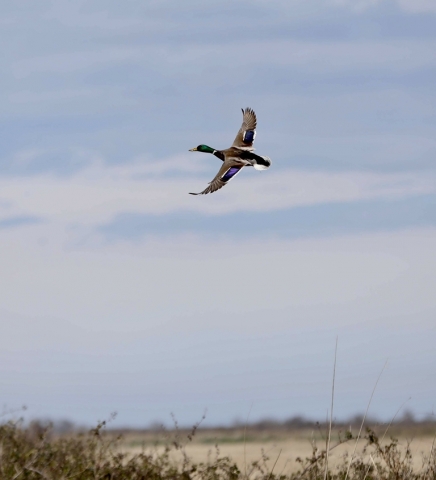Bird Ringing Studies Highlight Migration Shifts Due to Global Warming
Director of OMU Ornithology Research Center, Prof. Dr. Kiraz Erciyas Yavuz:
"Due to global climate change, shifts are occurring in migration patterns of certain species. They stay longer and arrive later."
Observations conducted at Ondokuz Mayıs University's (OMU) Bird Ringing Station in the Kızılırmak Delta, Samsun, indicate noticeable changes in the migratory behavior of various bird species due to global climate change.
Prof. Dr. Kiraz Erciyas Yavuz, Director of OMU Ornithology Research Center, told AA reporter that they've been ringing migratory birds for 23 years in the Kızılırmak Delta, which hosts 367 bird species.
Explaining that bird ringing is conducted twice each year—during autumn and spring—Yavuz said, "Apart from these regular periods, we carry out ringing studies from early March to late May and from mid-August to the end of October each year."
"In recent years, we've observed delayed arrivals for some species in the delta"
Noting that ringing sessions extend to approximately five months each year, Yavuz highlighted recent shifts: "We've observed that certain species are arriving later to the delta. For example, the Red-breasted Flycatcher previously completed its migration by the end of October but is now staying until November. Similarly, the European Robin, typically finished migrating by early October, now remains until November. Due to global climate change, such shifts in migration timing occur, resulting in longer stays, delayed arrivals, or sometimes entirely bypassing the area in spring. Consequently, we've extended our ringing sessions accordingly."
Yavuz pointed out they now observe bird species that typically wouldn't be present in November, prompting them to lengthen their ringing activities.
"We primarily ring passerine birds"
Prof. Dr. Yavuz provided additional information on their work, stating, "Spring ringing is somewhat less active because the birds arrive from the mainland. We primarily ring passerine birds, which migrate using a broad front migration, not restricted by ecological barriers. Coming from the mainland, these birds are generally well-fed and spend little time here before continuing north to their breeding grounds. Those breeding here settle and start nesting. In autumn, birds migrate back with their offspring, resulting in higher numbers as they cross the Black Sea and land here as their first stop."
190,000 birds ringed over 23 years
Yavuz noted that approximately 2,000 birds are ringed annually in spring, while between 7,000 to 8,000 are ringed in autumn.
"The numbers can be four times higher in autumn, as juvenile birds join the migration," explained Yavuz, concluding:
"We continue our studies annually over roughly 150 days, assisted by numerous volunteers and funded through various projects supported by Ondokuz Mayıs University. The Ministry of Agriculture and Forestry’s General Directorate of Nature Conservation and National Parks provides support, particularly in coordinating and supplying rings. To date, we've ringed over 190,000 birds. While primarily ringing passerines, we also set nets for shorebirds when water levels in the lake drop. Thus, our species diversity is extensive. If only passerines were considered, we'd have ringed about 90 species, but including ducks, shorebirds, and raptors, our current total reaches around 180 species."


















